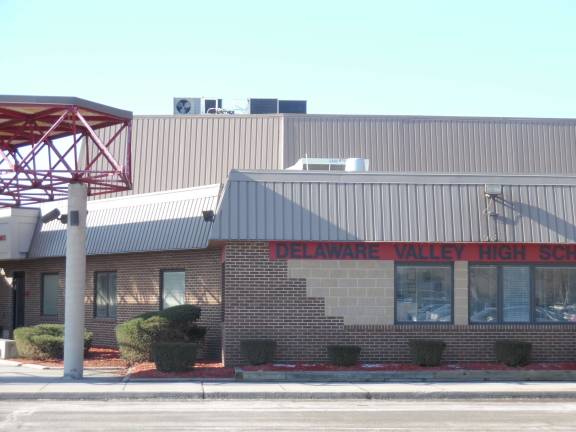School tweaks policy related to violence

By Anya Tikka
MILFORD — The Delaware Valley school board on Dec. 17 made several policy changes that seemed to address the recent threat of terror at the school.
The superintendent, however, said it was just a coincidence.
“None of these policies have anything to do with that," said Superintendent John Bell. "All of these policies were either up for their every-five-years review, or there were changes recommended by the PSBA (Pennsylvania School Board Association).”
A 16-year-old DV student was arrested in October for allegedly making terroristic threats, Eastern Pike Regional Police Chief Chad Stewart had told the Courier. The student was arrested Oct. 22 after an investigation by the Delaware Valley School Police.
The incident is still a pending police investigation, so Bell and other school representatives declined to comment. Calls to Pike County District Attorney Ray Tonkin go unanswered. The line seems to be permanently busy.
The policy changes included updates to standards: for victims of violent crime, for persistently violent schools, and for migrant students. “No discussion took place on any policies because all of them were minor wording changes," Bell stressed.
Bell said policy changes regarding charter schools, co-curricular participation by cyber and charter-cyber students, and online instruction were all part of the five-year review or PSBA recommendations. He said there are no known migrants in the district.
The policies state the district is required to encourage students currently enrolled in cyber or cyber-charter schools to participate in any of the school's extracurricular activities. Numbers of those enrolled in either type of school were not immediately available.
“I don’t have the numbers handy right now but the last time I looked both the number of kids going to outside cyber charters and the number of kids going to our cyber academy are both down compared to last year,” Bell said.
Tax index
The school board also agreed not to seek exceptions to the index regulating tax increases.
“This time every year, the board has to vote whether they plan to exceed the index or not,” Bell said. “Our index is 3.1 percent for next year. There are exceptions for PSERS (Public School Employees' Retirement System) costs and extraordinary special ed costs that would allow us to increase taxes up to 4.6 percent. We’ve never raised taxes up to the higher exception level. The board voted not to seek the exceptions. Thus, our tax increase for next year will be somewhere between zero and 3.1 percent, and no higher. We won’t know until late April or early May what the tax rate will be.”